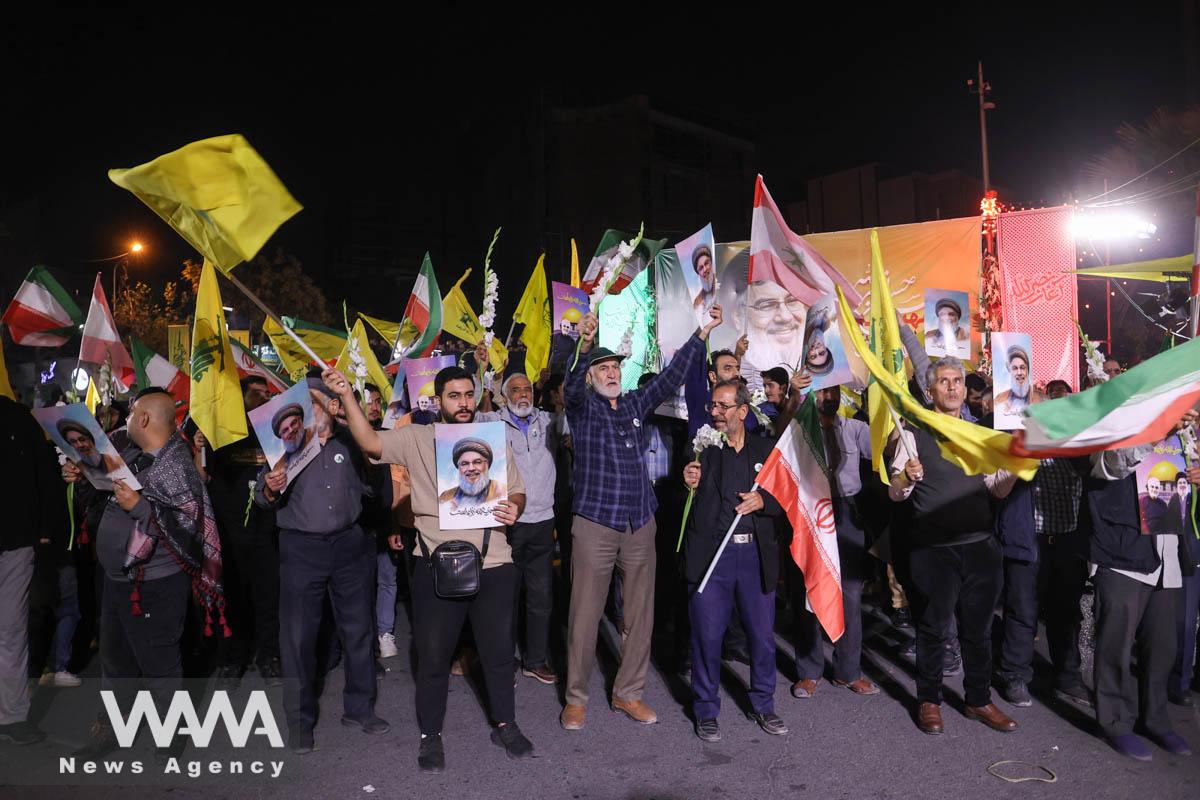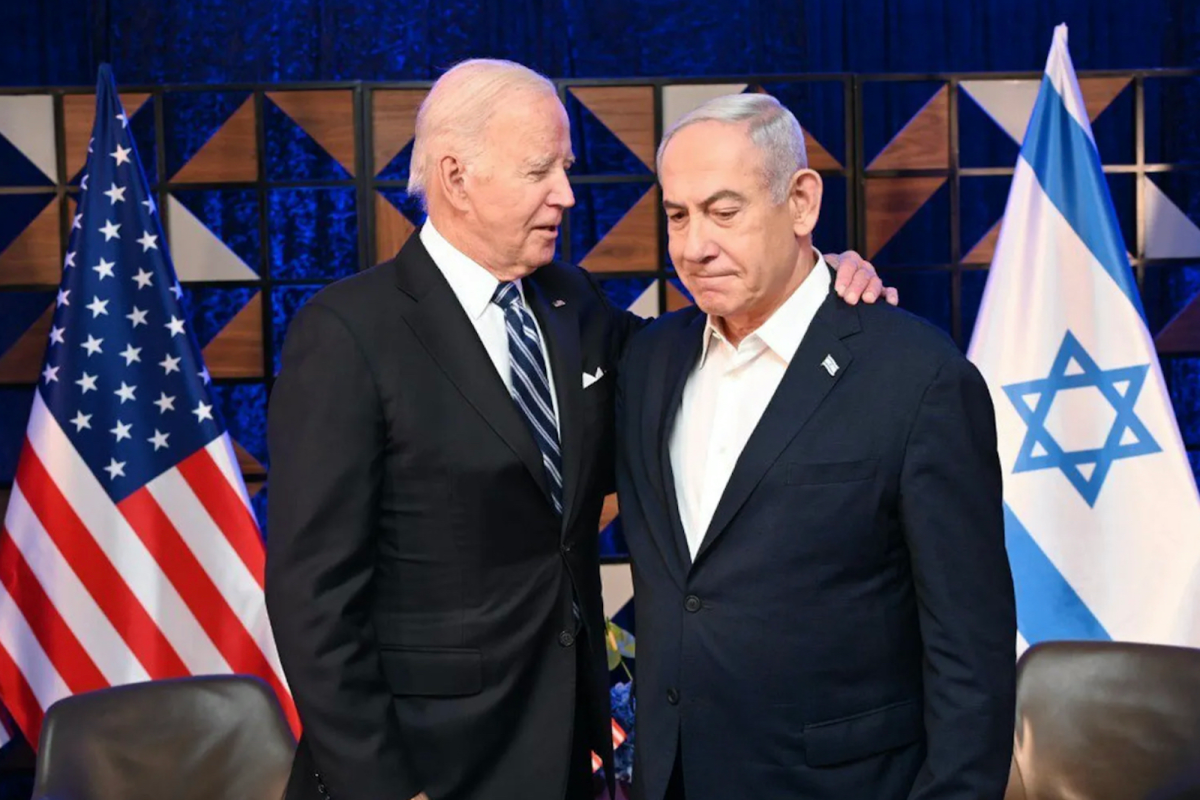Israel’s Critical Dilemma: Solving the Puzzle of Striking Iran
WANA (Oct 14) – As the Middle East undergoes new and significant developments, behind-the-scenes discussions between Israeli and U.S. officials about a potential attack on Iran are growing more complex and sensitive by the day.
Karine Jean-Pierre, the White House spokesperson, described these negotiations as “confidential,” but they have yet to reach any conclusions. Speaking uncertainly, the spokesperson noted, “I don’t want to speculate on what Israel will or won’t do.”
However, the White House is not the only one withholding further details. Even the CIA director, William J. Burns, has avoided making any clear predictions about a possible Israeli strike on Iran.
These cautious stances by American and Israeli leaders suggest that difficult decisions are being made behind the scenes. Nevertheless, this silence and ambiguity highlight that the West and Israel are reluctant to openly discuss “True Promise 2,” operation a severe threat posed by Iran.
Netanyahu in a Bind
Benjamin Netanyahu, the Prime Minister of Israel, who typically responds quickly and aggressively to threats, has not concluded an attack on Iran during his recent cabinet meeting.
Despite past efforts to project strength against Tehran, he seems to grapple with serious doubts. Why is Netanyahu acting so cautiously following recent assassinations? This is a question many analysts are pondering.
The editor of the newspaper “Raialyoum” also points to Iran’s defensive measures, stating: “In the border areas of Iran with Turkey and Iraq, a no-fly zone has been declared, and over a hundred advanced missile platforms, including hypersonic missiles like ‘Fattah,’ have been deployed. These missiles are prepared to destroy Israeli targets completely.”

A Few Major Milestones in Hezbollah’s Stunning Operation
WANA (Oct 14) – The killing and injuring of around 100 elite soldiers from the Golani Brigade, including officers and commanders, and possibly even some senior commanders of the Israeli occupation army, is not just a powerful military feat; it is also an extraordinary intelligence achievement. While Israel was claiming that it had dismantled […]
Regional Obstacles to an Israeli Attack
Regional obstacles have further heightened Netanyahu’s concerns. According to reports, Saudi Arabia, the United Arab Emirates, and Qatar have informed the U.S. that they will not allow Israeli fighter jets to transit through their airspace to attack Iran.
This decision represents a significant blow to Israel’s plans for an airstrike on Iran, severely increasing the country’s operational limitations.
Meanwhile, Iraqi resistance groups have also warned that if any attack occurs against Iran, U.S. military bases in Iraq will become targets of their assaults. These threats indicate that any military action against Iran could ignite new fronts of conflict in the region.
Internal Fronts of Israel: Insecurity and Fear
On the other hand, the internal situation in Israel is critical. Israeli settlers wake up every day to the sound of warning sirens, a noise that continues until midnight.
These sirens symbolize the ongoing attacks by Hezbollah on Israeli positions, attacks that have intensified following the assassination of Seyed Hassan Nasrallah and the reconstruction of Hezbollah’s military organization. Additionally, drone attacks from Yemen’s resistance have also emerged as new threats to Israel.
Analysts believe the Israeli army cannot manage a war on seven fronts. A military expert states, “Israel cannot simultaneously resist on the fronts of Gaza, the West Bank, Lebanon, Yemen, Syria, Iraq, and Iran.”

Iranians celebrate on a street after the IRGC attack on Israel, in Tehran, Iran, October 1, 2024. Majid Asgaripour/WANA (West Asia News Agency)
Iran’s Resistance: The Voice of the People
Meanwhile, surveys conducted in collaboration with American media among the Iranian population indicate that Israeli threats have not caused much concern among Iranians.
The Israeli defence minister recently threatened that the country’s response to Iran would be “powerful, precise, and surprising.” Still, the people of Iran speak about these threats with confidence and calm.
In an interview, an Iranian woman states, “I am not worried about war because I have faith in my country and my leader. I know that nothing can threaten the Iranian nation.” Another man, referring to the eight-year Iran-Iraq war, says, “If necessary, we will defend our homeland just like our fathers and brothers did. You will see the outcome of this jihad.”
A Lose-Lose Situation
All these developments indicate that Israel is in a lose-lose situation, regardless of whether it decides to attack or not. An attack on Iran could not only fail to weaken the country but also open multiple fronts against Israel, leading to stronger resistance from regional groups.
Conversely, refraining from an attack would mean accepting Iran’s growing power and that of resistance groups in the region—a power that can no longer be ignored.

Yesterday’s Refugees, Today’s Occupiers
WANA (Oct 12) – There is a historical photo that may have been forgotten over time. It depicts the ship “Exodus” in 1947, carrying over 4,500 Jewish refugees, Holocaust survivors, from Germany to the port of Haifa in Palestine. A banner on the ship’s side reads: “The Germans destroyed our families and homes, don’t […]












